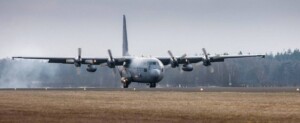OCHA Sudan: Returns in Darfur exceed number of newly displaced people
Last year, the Displaced Tracking Matrix of the International Organization for Migration (IOM) registered 186,813 people across Darfur and South Kordofan. In early March, the Sudanese Humanitarian Aid Commission (HAC) and humanitarian partners visited El Geneina in West Darfur to follow up on concerns of the community in the area. The high and increasing inflation in the country is contributing to soaring costs of agricultural production, the UN Office for the Coordination of Humanitarian Affairs (OCHA) in Sudan reported in its latest Situation Report.
 A convoy with refugees returning to Darfur from camps in eastern Chad, June 2018 (UNHCR)
A convoy with refugees returning to Darfur from camps in eastern Chad, June 2018 (UNHCR)
Last year, the Displaced Tracking Matrix of the International Organization for Migration (IOM) registered 186,813 people across Darfur and South Kordofan. In early March, the Sudanese Humanitarian Aid Commission (HAC) and humanitarian partners visited El Geneina in West Darfur to follow up on concerns of the community in the area. The high and increasing inflation in the country is contributing to soaring costs of agricultural production, the UN Office for the Coordination of Humanitarian Affairs (OCHA) in Sudan reported in its latest Situation Report.
Of the 186,813 people registered, 155,117 (83 per cent) were returnees and 31,696 (17 per cent) displaced people. Of the returnee caseload, 128,429 (83 per cent) were returnees from internal displacement and 26,688 (17 per cent) were returnees from abroad.
During the past two years, the number of returns in Darfur has exceeded the number of newly displaced people. All of the 128,429 registered returns of displaced people were in Darfur. In the same time period, there were 20,800 newly registered displaced people in Sudan’s western region.
The findings of the 2019 Crop and Food Security Mission attributed the substantial increase in areas cultivated in Darfur in 2018 to the return of previously displaced people to their villages for the planting season.
Flow monitoring registration activities are also currently implemented in Abyei to capture the arrival of South Sudanese into Sudan, as well as Khartoum International Airport and the port of Suakin in Red Sea state on returns of Sudanese nationals from the Kingdom of Saudi Arabia.
Humanitarian response in West Darfur
On 3-5 March 2020, Sudan’s Humanitarian Aid Commission (HAC) and humanitarian partners visited El Geneina, capital of West Darfur, to follow up on security concerns outlined by the community, access to basic services, and justice for those affected by violence.
The mission team met with the HAC commissioner, the West Darfur governor, UN agencies, INGOs, and leaders from Arab and Masalit communities, OCHA states.
Despite improvements to the security situation in the camps, the displaced remain concerned that the improvements will not be sustained. Improvements have been made to services in the camps, with the Humanitarian Aid Commission and humanitarian partners providing shelter support.
Alleged perpetrators of the violence which displaced thousands of people at the end of December 2019 have been detained, however, none of the stolen property has been returned or replaced.
Community leaders agreed to allow partners to conduct damage assessments to the shelters in Kerending 1, Kerending 2, and the Dar El Sultan camps, and to a needs’ assessment in areas where humanitarian needs have not yet been identified.
Inflation raises concerns about food security in Sudan
The annual inflation rate continues to increase in Sudan and reached 64.3 per cent level in January 2020, according to the latest update from the Central Bank of Sudan (CBoS).
The rate increased from 57 per cent in December 2019 and is the second highest since December 2018 when it reached 73 per cent.
The prices of locally produced sorghum and millet in most markets have been characterised by an upsurge during the last 12 months, due to the high costs of production and transportation, depreciation of the local currency and increasing inflation that started at the end of 2017.
In 2020, about 9.3 million people in Sudan will need humanitarian assistance and protection. This represents almost one in every four people in Sudan.
The UN and partner organisations aim to assist 6.1 million of the most vulnerable people in Sudan through the Humanitarian Response Plan 2020 requiring $1.35 billion from donors.
Radio Dabanga’s editorial independence means that we can continue to provide factual updates about political developments to Sudanese and international actors, educate people about how to avoid outbreaks of infectious diseases, and provide a window to the world for those in all corners of Sudan. Support Radio Dabanga for as little as €2.50, the equivalent of a cup of coffee.












 and then
and then